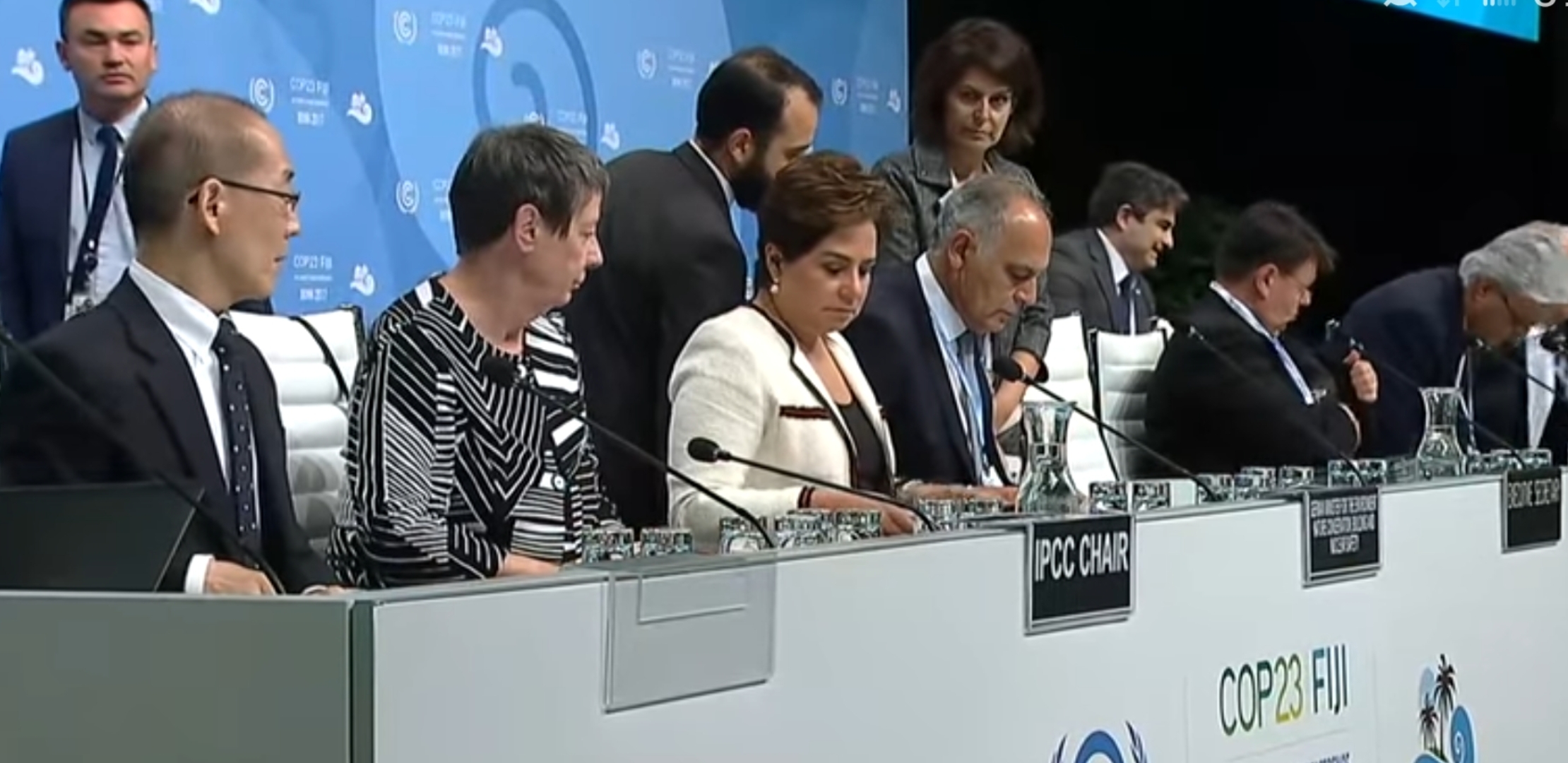
July 08, 2019
Andrew Campbell
In the 2019 UN Bonn Climate Change Conference, despite an overwhelming majority of countries calling for a thorough discussion of the IPCC report, discussions again came to a deadlock after Saudi Arabia, Australia, Iran, and the US refused to engage in substantive debate over how IPCC’s findings could be adopted into policies on increasing the pace and scale of decarbonization. Statements undermined from the opposition led by Saudi Arabia were trying to cast doubt on the IPCC report’s scientific grounding and stressed the “risks and uncertainties” of its methodology and raised concerns that “the scientific knowledge gap” would “hamper the ability to inform decision making at national, regional and international levels.”
At the closing plenary of the 2019 UN Bonn Climate Change Conference, a five-paragraph watered-down agreement put an end to formal discussions on the IPCC report without further negotiations. Carlos Fuller, the lead negotiator for the Alliance of Small Island States (Aosis), told Climate Home News about his disappointment that there would be no other formal opportunities for countries to delve into the science and prevent the science from being debated as well. In an op-ed in the Financial Times, the chair of Aosis and Ambassador of Belize Lois Young condemned that a few countries took the strategy of “a rejection of multilateralism” five years after all countries had agreed to the Paris Agreement and wished to “quietly use procedural measures to rip it up away from the public gaze.” She also stated that it would be a crisis for “small islands and low-lying coastal developing states like my home, Belize, are disposable global zones to be sacrificed amid unprecedented climate change.”
Photo:Webshot.
